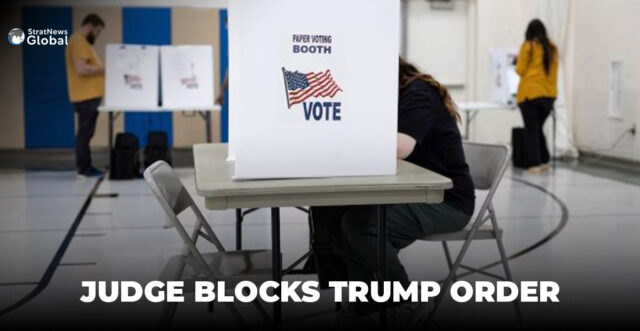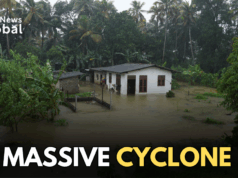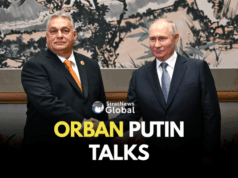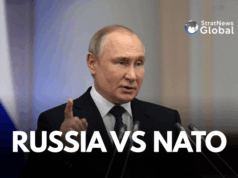A U.S. judge on Thursday halted sections of President Donald Trump’s executive order that aimed to introduce new rules for federal elections, following concerns from Democrats and other groups that it could restrict voting rights for eligible citizens.
U.S. District Judge Colleen Kollar-Kotelly in Washington ruled that the Trump administration cannot enforce parts of the order requiring federal election officials to assess whether people who are registering to vote are citizens.
She declined, however, to block parts of the order that sought to force states not to count mail-in ballots received after election day.
The ruling came in response to lawsuits by groups including the Democratic National Committee, the League of United Latin American Citizens and the League of Women Voters Education Fund.
League of United Latin American Citizens President Roman Palomares and League of Women Voters Chief Counsel Marcia Johnson both hailed the ruling as a “victory.” The DNC did not immediately respond to a request for comment.
A U.S. Justice Department spokesperson said the department “will continue to fight in court to defend President Trump’s agenda.”
Trump has long questioned the U.S. electoral system and continues to falsely claim that his 2020 loss to Democratic President Joe Biden was the result of widespread fraud. Trump and his Republican allies also have made baseless claims about widespread voting by non-citizens, which is illegal and rarely occurs.
The Republican president’s March executive order called on a non-partisan federal election body to modify a standardized national voter registration form to require a document such as a passport proving citizenship, and federal officials to “assess” the citizenship of people on public assistance before offering them voter registration forms.
Plaintiffs have claimed that these measures could discourage or prevent eligible citizens from registering.
Kollar-Kotelly found that those parts of the order were illegal because the U.S. Constitution gives states, not the president, the power to oversee elections.
Trump’s also required federal agencies to open their databases to the Elon Musk-spearheaded Department of Government Efficiency to search for non-citizens who have registered to vote, and threatened to cut off federal funding from states that count votes from ballots received after election day. Some states count such ballots if they are postmarked on or before election day.
The U.S. judge declined to block those provisions, finding that Trump has the power to order agencies to share information, and that the challenge over mail-in ballots should be brought by the states themselves rather than separate interest groups.
Democratic-led states are currently pursuing their own lawsuit in Massachusetts federal court. The Trump administration has sought to have that case transferred to Kollar-Kotelly’s court, but the Massachusetts court has not yet ruled on that request.
(With inputs from Reuters)





